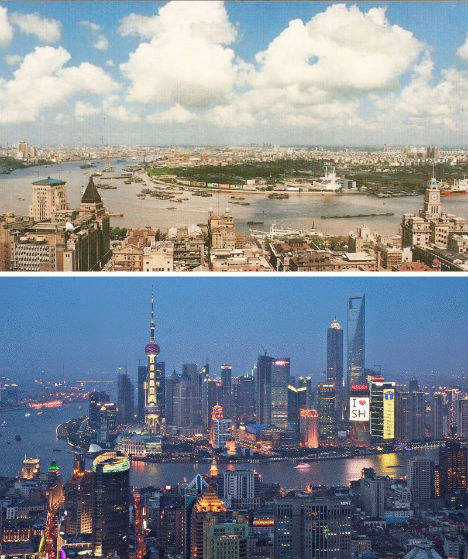GEO: Demographic Transition Explained (by Me)
For your review, you can see my explanation of the demographic transition here:
at this site you will need to sign up I believe to view this content. It's free and painless, and you don't have to do it if you don't want to, but if you want to see the presentation you will have to do it.
http://www.educreations.com/course/lessons/1691391/
if that doesn't work, try this:
http://www.educreations.com/sr/19CF00
the course code, if you want to search for material for this geography class, is 19CF00 , but as of now the only thing I've posted is the demographic transition model.
at this site you will need to sign up I believe to view this content. It's free and painless, and you don't have to do it if you don't want to, but if you want to see the presentation you will have to do it.
http://www.educreations.com/course/lessons/1691391/
if that doesn't work, try this:
http://www.educreations.com/sr/19CF00
the course code, if you want to search for material for this geography class, is 19CF00 , but as of now the only thing I've posted is the demographic transition model.
GEO: Urban Geography and the Environmental impact of cities.
Conventional wisdom is that cities are good for the environment. Like landfills, they concentrate waste and the inevitable disruption that human habitation wreaks on the environment. Here is a caveat though from Time Magazine's environmental and energy senior correspondent Bryan Walsh:
Urban Planet: How Growing Cities Will Wreck the Environment Unless We Build Them Right
More and more people are moving into cities around the world—and those cities are getting bigger and bigger. The urbanization shift could wreck the environment—unless we can plan the transition.

Getty Images
The Chinese city of Shanghai will be one of the largest urban areas in the world
Anthro: Culture clash in the Middle East
Why does the Middle East east errupt over a really quite stupid, low budget independent film that mocks Islam? Would you burn down your neighbor's house because his son called you a "Doo Doo Head" and stuck his toungue out at you? Would religious fundamentalists take top the streets and storm embassies if someone, say, recorded a pop song that mocked Jesus? Probably not. So I've been wondering- what ELSE is going on there? Here's one prospective answer.
From the New York Times:
Cultural Clash Fuels Muslims Raging at Film
http://www.nytimes.com/2012/09/17/world/middleeast/muslims-rage-over-film-fueled-by-culture-divide.html
From the New York Times:
Cultural Clash Fuels Muslims Raging at Film
http://www.nytimes.com/2012/09/17/world/middleeast/muslims-rage-over-film-fueled-by-culture-divide.html
ANTHRO & GEO: Rich Get Richer, Poor Get Poorer.
LA Times Sept. 12, 2012
U.S. income gap between rich, poor hits new high
U.S. poverty rate leveled off in 2011, but in California it hit a 16-year high, census data show. Also, middle- and lower-income groups took financial hits.
http://www.latimes.com/business/la-fi-census-poverty-rate-20120913,0,4738274.story?%2F
GEO: Global urbanization and Conflicts in Africa
From the Atlantic Monthly's sister site:
1) The Uneven Future of Urbanization
http://www.theatlanticcities.com/neighborhoods/2012/04/uneven-future-urbanization/1707/
2) A Depressingly Crowded Map of Conflicts in Africa
http://www.theatlanticcities.com/politics/2012/09/depressingly-crowded-map-conflicts-africa/3264/
1) The Uneven Future of Urbanization
http://www.theatlanticcities.com/neighborhoods/2012/04/uneven-future-urbanization/1707/
2) A Depressingly Crowded Map of Conflicts in Africa
http://www.theatlanticcities.com/politics/2012/09/depressingly-crowded-map-conflicts-africa/3264/
ANTHRO: Something to think about Vis-a-Vis males
New York Times Op-Ed piece:
Men, Who Needs Them?
By GREG HAMPIKIAN
Published: August 24, 2012
http://www.nytimes.com/2012/08/25/opinion/men-who-needs-them.html?_r=2&src=me&ref=generalSpotlight China: Shahai Development
From the vaults of NPR (1996):
You might be interested to take a look of this before and after photo of Shanghai's Pudong district. The span of time between when the two were taken is merely a decade.

Shanghai Urban Development: The Future Is Now
http://www.npr.org/templates/story/story.php?storyId=6600367You might be interested to take a look of this before and after photo of Shanghai's Pudong district. The span of time between when the two were taken is merely a decade.

GEO: The geographic distribution of generosity
From NPR:
http://www.blogger.com/blogger.g?blogID=6020619782451519037#allposts
One more thing that has a geographic distribution that you may have never reallt thought about.
The Chronicle of Philanthropy (A great source for this kind of data) has a nice set of interactive maps.
Study Reveals The Geography of Charitable Giving
http://www.blogger.com/blogger.g?blogID=6020619782451519037#allposts
One more thing that has a geographic distribution that you may have never reallt thought about.
The Chronicle of Philanthropy (A great source for this kind of data) has a nice set of interactive maps.
GEO: Mixed bag- Separatism in Canada and Chinese History
1 day ago ... Seen as a rejection of the scandal-plagued Liberal Party, the separatist Parti Québécois captured the largest number of seats in the Quebec ...
September 4, 2012 - By IAN AUSTEN - World / Americas - Article - Print Headline: "Separatist Party Wins Quebec Elections"
What happens when death and violence on a massive scale are covered up, as they were in China’s Great Leap Forward, which ended 50 years ago this year but is still a taboo topic in China? Sep 5, 7:55 am
Subscribe to:
Posts (Atom)